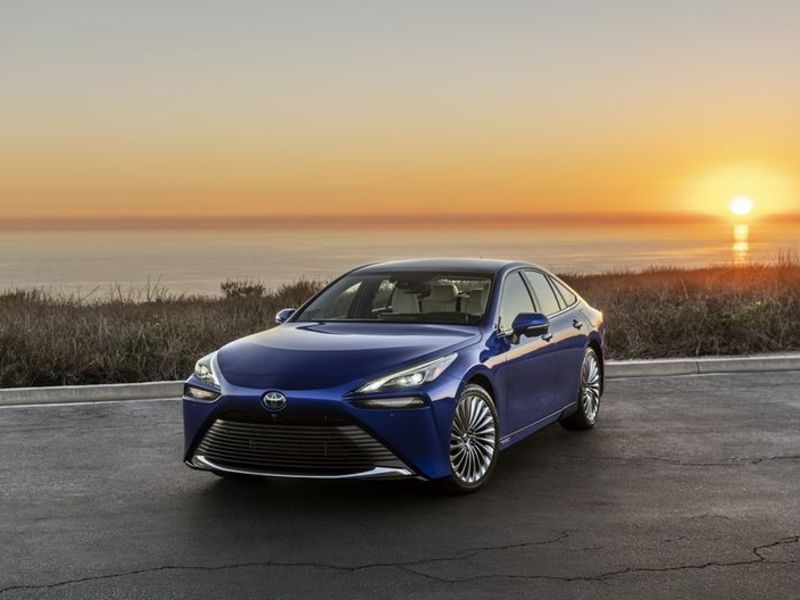
Toyota Canada and Lyft are teaming up to give drivers working for the ride-hailing service in the Vancouver region the ability to rent a limited number of the automaker’s hydrogen-powered Mirai sedans.
Toyota, a major proponent of hydrogen fuel cell technology, hopes the partnership will showcase its zero-emissions technology and its recently redesigned Mirai. The new Mirai is equipped with an overhauled fuel cell stack the automaker hopes to eventually roll out to a range of trucks.
“We’ve long maintained that hydrogen fuel cell technology could be a zero-emissions solution across a broad spectrum of vehicle types,” Mitchell Foreman, Toyota Canada director of advanced and connected technologies, said during a Wednesday media briefing.
Toyota launched the Mirai roughly six years ago, but by the end of September 2020 had sold only 11,100 vehicles, with consumers concerned over the lack of fueling stations and the vehicle’s resale value. The redesigned version has a wider range of 310 miles, a 30 percent improvement over the outgoing version
Twenty-four Mirais will be made available to Lyft drivers through Kinto Share, Toyota’s new-vehicle rental program. Through the Kinto Share mobile app, drivers can choose to rent the Mirai for $198 per week, not including taxes and fees, picking it up at one of three Toyota dealerships in the Vancouver region. The weekly cost covers insurance and scheduled maintenance and includes unlimited mileage.
“This program makes it easier for people who can’t afford the upfront cost of purchasing a car or prefer to not make that investment to make supplemental income,” said Peter Lukomskyj, general manager of Lyft in British Columbia.
Lyft has set a target of making its entire fleet zero-emissions by 2030.
Colin Armstrong, CEO of the Hydrogen Technology and Energy Corporation (HTEC) in British Columbia, said the partnership would help to address the “chicken-and-egg problem” with hydrogen fuel cell infrastructure by putting more hydrogen-powered vehicles on the road.
“You’re not going to have fuel supply unless you have fuel demand,” he said. “So this program really brings the vehicles and the usage to our stations and will allow us to invest as HTEC and as a province in more infrastructure.”
HTEC currently operates four hydrogen-fueling stations in British Columbia, with a goal of opening three more by the end of the year, Armstrong said.
With files from Reuters.

